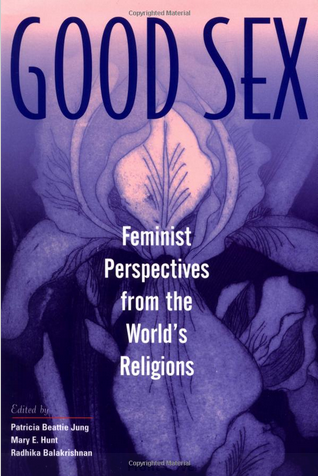Description
edited by Patricia Beattie Jung, Mary E. Hunt, and Radihka Balakrishnan
What is “good sex” in the globalized world of the twenty-first century? This book brings together essays by feminist scholars from different religions and cultures to consider how women are redefining sexuality for the common good.
The essays explore such issues as sexual and social restrictions on women, religiously and socially acceptable avenues of sexual expression, constructions of sexual identities, and attitudes towards women’s sexual desires. The contributors ask questions such as: How is sexual desire constructed within specific cultural and religious contexts? What sacrifices must women make (and how do they make them) simply to have sexual lives? What options and strategies are available to women to dissolve the many restrictive boundaries imposed on their sexuality.
Each contributor has read and helped refine the work of the others, which gives this volume unusual coherence and narrative force. (Rutgers University Press, 224 pages, $33.95 plus s+h). Order via mail
“Good Sex is a pioneering effort to create an interreligious dialogue specifically on sexuality. . . . [It] is the realization of efforts by concerned feminists to talk across national and religious borders in the name of social justice.” – VOLUNTUS, International Journal of Voluntary and Nonprofit Organizations
“This collection of essays is a useful addition to contemporary post-colonial, post-Beijing women’s studies courses that seek to integrate a plurality of cultural and religious perspectives into the discourse on women’s sexuality. . . . The volume is very helpful in communicating a sense of the history or feminist discourse and the effects of globalization on that discourse. . . . And everyone smiles when they hear the title of the book.”- Journal of Contemporary Religion
“This groundbreaking collection of 11 articles by women from eight countries and seven religious traditions challenges male-defined ideas of sexuality that have constricted women by denying them pleasure and autonomous agency and threatening their well-being and, sometimes, lives. . . . While the contributors do not always agree, they do recognize the importance of global and interdisciplinary perspectives and affirm the tension women experience when they work for change from within a repressive tradition. Recommended.”
– Library Journal
“The collection as a whole makes both an explicit and implicit case for culture, and not religion, being the primary source of undertandings of sex as solely for reproduction, and illustrates religions that have always recognized other purposes (Judaism, Islam) as well as religions which have come to recognize other purposes (Christianity). . . . A very useful collection in terms of both the data is provides and its methodological reflection.”-Conscience
“At this most timely moment in history, [Good Sex] presents diverse and supremely intelligent perspectives on the systematic terrorizing of women through sexual slavery, marital rape, domestic violence, and rules of behavior designed to numb mind, body, and spirit. . . . At the same time, the major message of the book is one of optimism. It offers eloquent language for redefining sexual pleasure beyond immediate, goal-oriented gratification and for discussing ethical principles that locate sex at the center of public policy, not only in the bedroom or the family law courts. . . . [Good Sex] contains insightful arguments for sexual justice, inviting us to rethink and expand our stock definitions of what constitutes good sex, or even sex itself, and to reevaluate the contexts in which such redefined sex can be enjoyed. This collection of essays deserves to be on the shelf of every library on the planet as well as standard issue in women’s study courses and all courses dealing with sexuality, spirituality, and religion.” – The Journal of Sex Research
“Good Sex is a rare gem. It opens doors of inquiry into feminism, religion, and sexuality-exploring terrain that is vital to the human rights of women and men. It invites passionate debate and will no doubt become a classic.”- Charlotte Bunch, executive director, Center for Women’s Global Leadership, Rutgers University







